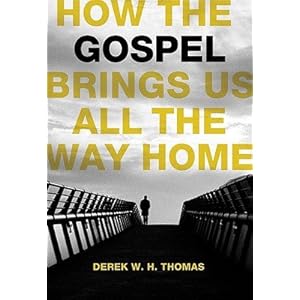Blessed is the man
who walks not in the counsel of the wicked,
nor stands in the way of sinners,
nor sits in the seat of scoffers;
but his delight is in the law of the LORD,
and on his law he meditates day and night.
(Psalm 1:1-2 ESV)
I believe that reading the Bible is important for the Christian. It is the most effective way to know what God says. The past couple of years, I have reviewed several Bible reading plans. You can find the list of programs I reviewed
here. Each of these programs has different strengths and weaknesses, but whatever gets you reading the word is a good program. When I started with serious Bible study, I began with the
John MacArthur approach, which allowed me to cover large sections of scripture repeatedly. Over the past few years, however, I have switched to the
Grant Horner plan, which involves reading chapters from 10 different places each day, which allows for understanding of passages in context.
This past year, I took a course in biblical hermeneutics. One of the points that Jeannine Brown made in her book
Scripture as Communication (2007) was that many of the books of the Bible were written to be read as long letters rather than isolated chapters or verses. In order to truly get the understand what is being said, in order to get the context, it is useful to read large sections of books. Doing this also allows the reader to have a broader sense of the historical-redemptive context of the Bible rather than as a series of moral stories.
So, taking what I have liked about Grant Horner and John MacArthur specifically, I have decided to pull together my own program, which also recognizes the importance of reading large sections of scripture. Like the Horner program, it is important to read through at a moderately quick pace. About his program, Horner wrote, "GET THROUGH THE TEXT--no dawdling, back reading, looking up cross references." If his program is any indication, you will become quicker as you continue on.
Here is what I am proposing to try.
1) I broke the Bible into 5 sections: Old Testament, Psalms, Proverbs, Gospels+Acts, and New Testament letters.
2) Each day, you will read one chapter from psalms and one chapter from proverbs. These books are such that smaller units retain their meaning in isolation. When you get to the end of Psalms, go back to the beginning and start again. (You may wish to break 119 into several sections--it is 179 verses long). You can do the same thing with the Proverbs if you wish, or you can read the Proverb of the day (e.g., read Proverbs 1 on the 1st, etc.)
3) You will alternate between Old Testament, Gospels, and rest of New Testament as follows: First, you will read all of Genesis over a period of 1 week. Then you will switch to Matthew and read that over 4 days. Then you will read Romans over 2 days. Then you will switch back to the Old Testament and read Exodus over 5 days. You will continue switching Old Testament-Gospel-Other New Testament on and on.
I plan to read 1 chapter from Psalms, 1 chapter from Proverbs and roughly 6-8 chapters from the other books each day. This will lead to a maximum of 10 chapters per day, which is very doable if you don't bog down with deep study. You can do that later if you wish. Right now, you are trying to get through text. You can certainly alter the number of chapters that you would cover in each day to meet your time constraints.
Assuming approximately 6-8 chapters per book, it would take this many days for each book: Genesis-7, Exodus-5, Leviticus-4, Numbers-5, Deuteronomy-5, Joshua-3, Judges-3, Ruth-1, 1 Samuel-4, 2 Samuel-3, 1 Kings-3, 2 Kings-4, 1 Chronicles-4, 2 Chronicles-5, Ezra-2, Nehemiah-2, Esther-2, Job-6, Ecclesiastes-2, Song of Solomon-1, Isaiah-9, Jeremiah-7, Lamentations-1, Ezekiel-6, Daniel-2, Hosea-2, Joel-1, Amos-2, Obadiah/Jonah-1, Micah-1, Nahum/Habakkuk-1, Zephaniah/Haggai-1, Zechariah-2, Malachi-1, Matthew-4, Mark-2, Luke-3, John-3, Acts-4, Romans-2, 1 Corinthians-2, 2 Corinthians-2, Galatians-1, Ephesians-1, Philippians/Colossians-1, 1&2 Thessalonians-1, 1 Timothy-1, 2 Timothy/Titus/Philemon-1, Hebrews-2, 1 & 2 Peter-1, 1,2,3 John/Jude-1, Revelation-3.
If you read at the pace of 8-10 chapters per day, you will read through the OT passages about 1.5 times, the Psalms about 2.5 times, Proverbs 12 times, the Gospels 9 times, and the NT letters about 3.5 times in one year.
Here is an example in scribd of what it would look like for a year.
If you choose to try this, or have more questions about how it is going for me, please let me know!




